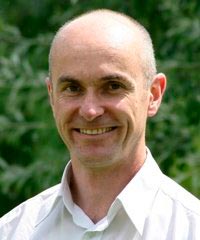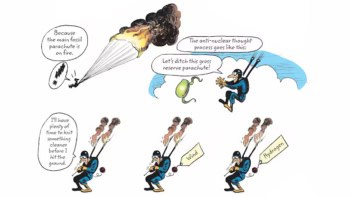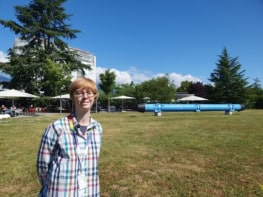
The physicist David MacKay has been appointed chief scientific adviser to the UK government’s Department of Energy and Climate Change. MacKay is a professor of physics at the University of Cambridge and author of the book Sustainable Energy – Without the Hot Air, which offers numerical estimates of the UK’s future energy production and consumption after fossil fuels run out.
Speaking shortly after his appointment was announced, MacKay described climate change and secure energy as “two of the most urgent issues facing the UK and the global community” and added that “the solutions must be rooted firmly in science”.
Known for his no-nonsense approach to outlining the challenges of reducing the UK’s carbon footprint, MacKay told the BBC this morning that “we need to move the conversation on from the Punch and Judy show of anti-wind and anti-nuclear to a quantitative discussion”. He added that “people need to understand the numbers and the choices.”
As aging coal-fired and nuclear plants go offline in the UK, MacKay is also worried that the country could be short of electricity by 2016. “My guess is the market might fix the problem by building more gas power stations, which is not the direction we want to be going,” he told the BBC.
Industrialization of the countryside
MacKay believes that the UK can achieve energy sustainability in two ways. The first is the “industrialization” of the British countryside – covering it with vast numbers of wind turbines, for example – or the industrialization of someone else’s countryside – solar cells in the Sahara, for example. The other option is to build lots of new nuclear reactors and possibly “clean coal” power plants that capture the carbon dioxide that they release and bury it underground.
However, MacKay believes that any solution is going to be a tough sell. “The public is anti everything,” he told the BBC. “There is a strong anti-wind movement, a strong anti-nuclear movement, people are against the [tidal power] barrage in the Severn, they’re against waste incinerators and they’re not that keen on electric cars and insulating houses. We have to stop saying no to these things and understand that we have a serious building project on our hands.”
MacKay takes over his new role on 1 October and will be seconded from Cambridge for four days a week. A review of MacKay’s book is to appear in the October issue of Physics World magazine.



